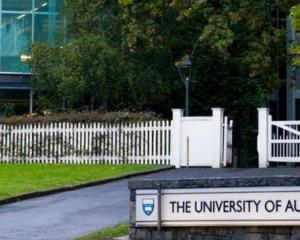
The teacher, whose name is suppressed, appeared before the Teachers Disciplinary Tribunal today on 10 charges including deprivation of food, pushing and shoving children and yelling at children in two centres in 2017.
She said she was horrified childcare centres no longer seemed to believe in teaching children but just wanted to "keep them happy".
A caregiver who was working in the same room at one of the centres said the teacher regularly checked the children's lunchboxes and told children, "No, you can't have that."
"Some of the children were crying" she said.
The centre provided lunch for all the children and some children agreed to eat the centre's food after the teacher confiscated food from their lunchboxes.
But some did not. The caregiver gave an example of a 3-year-old Filipino boy who brought rice that needed to be heated.
"[The teacher] refused to heat it up," she said.
She said the teacher took food out of the boy's lunchbox and told him: "It's not good for you, it's not good for your brain."
The boy then refused to eat either the centre's food or the food his parents had sent with him.
"He was upset," she said. "He said, 'No, I don't want to eat anything because she said it's not good for my brain.'"
She said the teacher objected to crackers, biscuits and potato chips in the children's lunchboxes.
The caregiver choked up when she was asked whether the teacher had hurt the children when she pushed some outside and told them to go back to their home rooms.
"I think that that was abuse," she said.
"She would put her hand on their backs and shove them and push them outside saying, 'Sorry you can't be here, you go back to your teacher.'"
The centre had an "open door" policy allowing all children aged 2 and over to go into any of the three rooms for children aged 2, 3 and 4.
This was so the younger children could visit older siblings or simply get used to the older children's rooms so they could move up a room comfortably when they were old enough.
But the teacher, who was teaching in the 4-year-olds' room, brought in her own resources and ran structured literacy and maths lessons which she did not want to be interrupted.
She said early childhood education seemed to have changed while she was overseas between 2003 and 2011.
"To my horror, I found that the early childhood service had changed completely," she said.
"So many children were in for-profit centres, the numbers were much higher and the expectations for the children seemed to be lower."
There were now more untrained staff in centres, with less emphasis on teaching.
"There seemed to be more emphasis on just keeping the children happy for the day and sending them home happy, rather than actually developing them, and there was a lot less education of the parents than I was used to."
She said the philosophy seemed to be "to keep the numbers up".
"If that means don't approach them because the child is not developing, it has to be really, really bad before you could talk about it.
"I could see children that were missing out on extra attention and that upset me."
She said it had always been part of a preschool teacher's job to help children make the right choices with food.
"I would say something along the lines of, 'Hey, you need to eat your sandwich first, that's going to help you be big and strong and have a good brain,'" she said.
The tribunal has reserved its decision.












